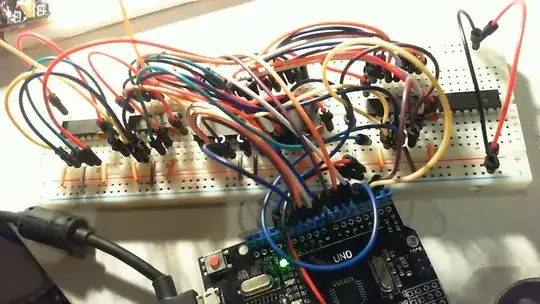Background:
A few days ago I received a 23LC1024 1Mbit SRAM chip, which works like a charm. However, before I ordered that one, I ordered a LP621024D-70LL which also is a 1 Mbit SRAM but in DIP32 format, meaning LOTS of pins.
Now I made a breadboard setup with 3 shift registers 74HC595 to be able to set the address (tested with LEDs but should work).
However, when trying use a shift register for the data which can be read or write, I don't think I can use a 74HC595 since it is only for output. However, I also don't think a 74HC165 (shift in register) would work (if I had one).
Questions:
What kind of shift register would I need, one that can do both input and output? I read about I2C registers but that seems to be a bit of overkill.
I only have 74HC595 shift registers for setting the address, would that slow down SRAM? I mean are there faster registers? Not that I want to buy it, but just curious.
Here is a picture of a working LP621024D-70LL ... too bad the chip is barely visible , on the left are 2 74HC595s and right are also 2 (right one not used), these 3 shift registers take care of the address (17 bits -> 3 bytes). The SRAM itself is hidden under the center of the cables.
